As a swimmer, you put your muscles to the test and require nutrients to help repair and grow these muscles. The key to your post-swim nutrition lies in the perfect balance of proteins and carbohydrates.
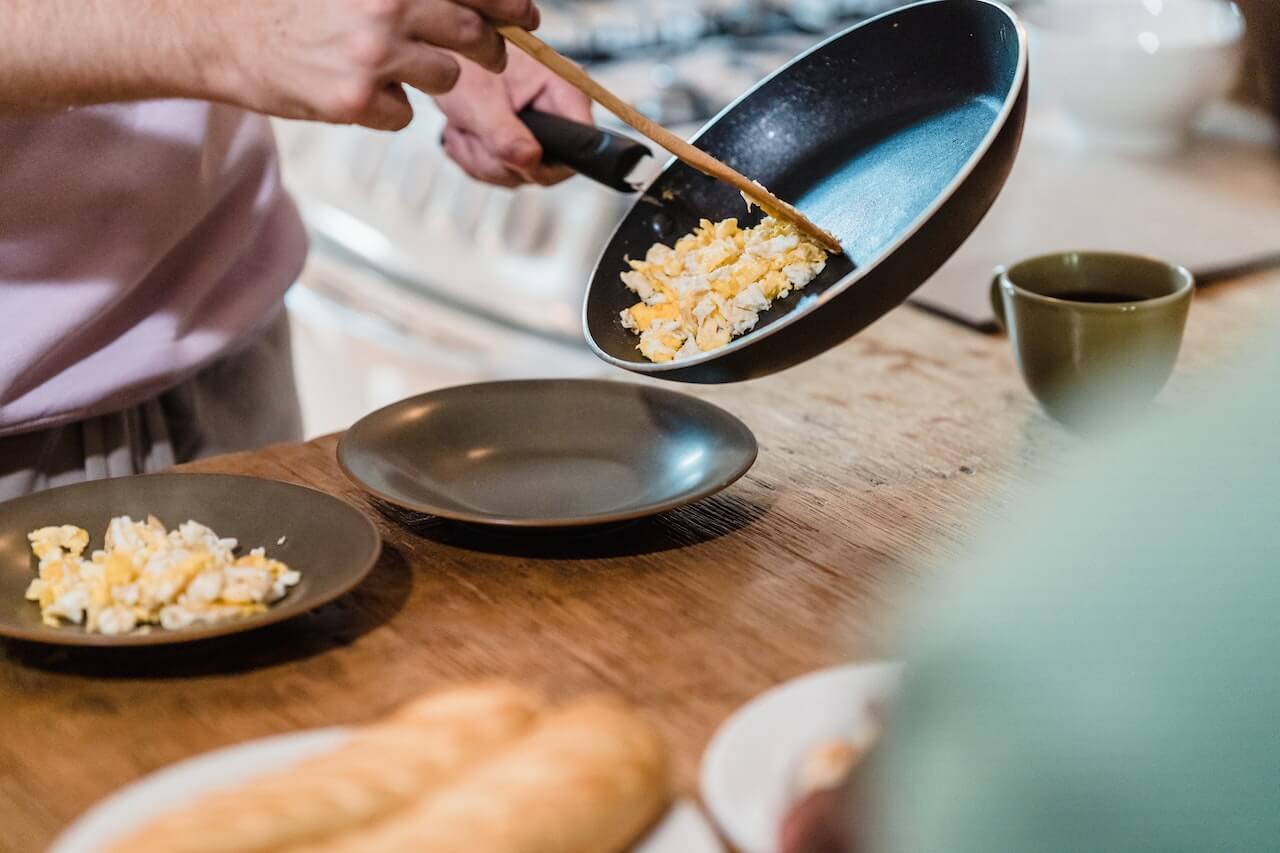
In this article, we’ll explore some tasty and nutritious food options that will keep you in tip-top shape and ensure you stay ahead of the game.
Why Post-Swim Nutrition Matters
Recovery and Muscle Growth
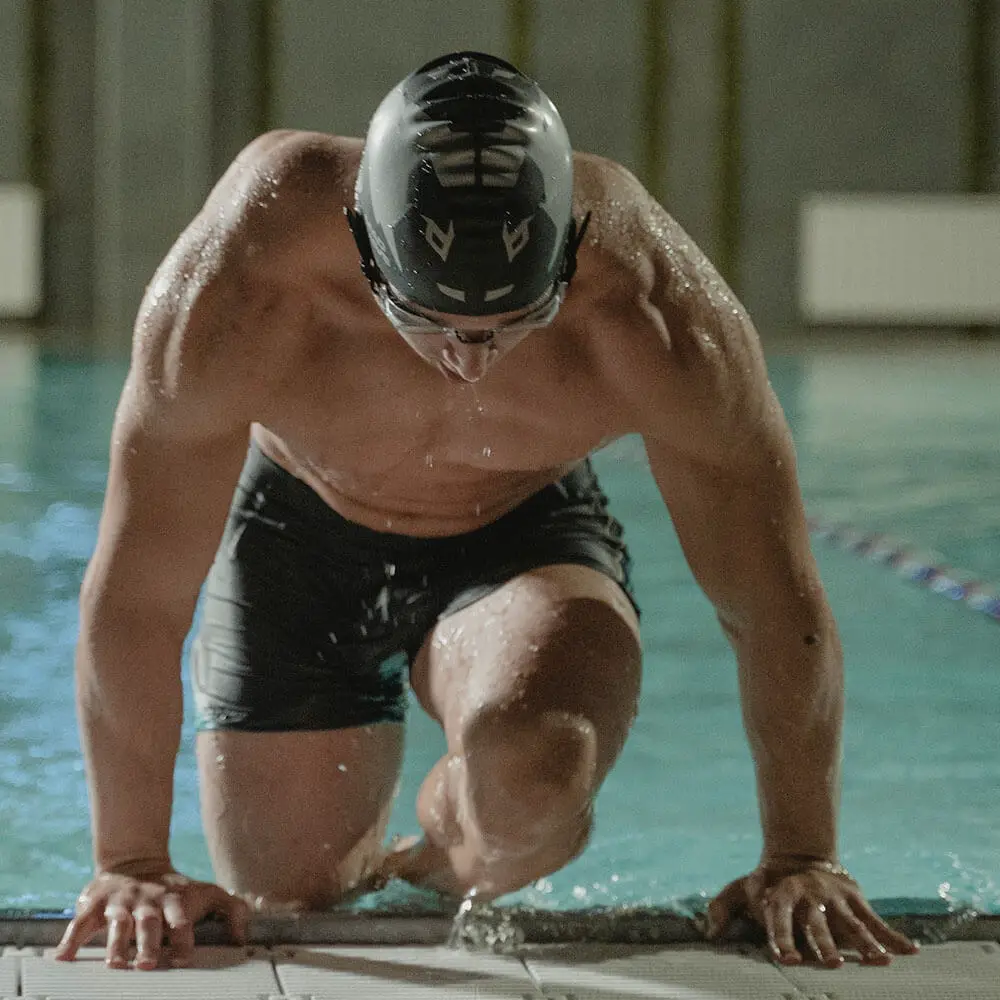
Post-swim nutrition is essential for your body’s recovery and muscle growth. When you swim, you stress your muscles and use up energy stores, requiring proper nutrients to repair and replenish.
Consuming protein and carbohydrates within an hour after your swim practice, even better if it’s within 20 minutes, can help you better recover.
Protein is vital for muscle repair and growth, while carbohydrates help refuel your body’s glycogen stores. Aim for a meal containing a mix of these nutrients. Some good options include:
- Scrambled eggs and avocado toast
- Greek yogurt with fresh fruit
- Acai bowl with fruit, peanut butter, and granola
Boosting Immune System
Swimming is a physically demanding activity that can temporarily weaken your immune system. Including vitamins and minerals in your post-swim meal can help strengthen your immune system and reduce the risk of illness.
Foods rich in antioxidants, such as colorful fruits and vegetables, can help combat oxidative stress and support overall recovery.
For optimal immune support, consider including the following in your post-swim meal:
- A variety of colorful fruits, like berries or oranges
- Leafy greens, such as spinach or kale
- Nuts and seeds for a healthy dose of vitamins and minerals
Enhancing Swim Performance
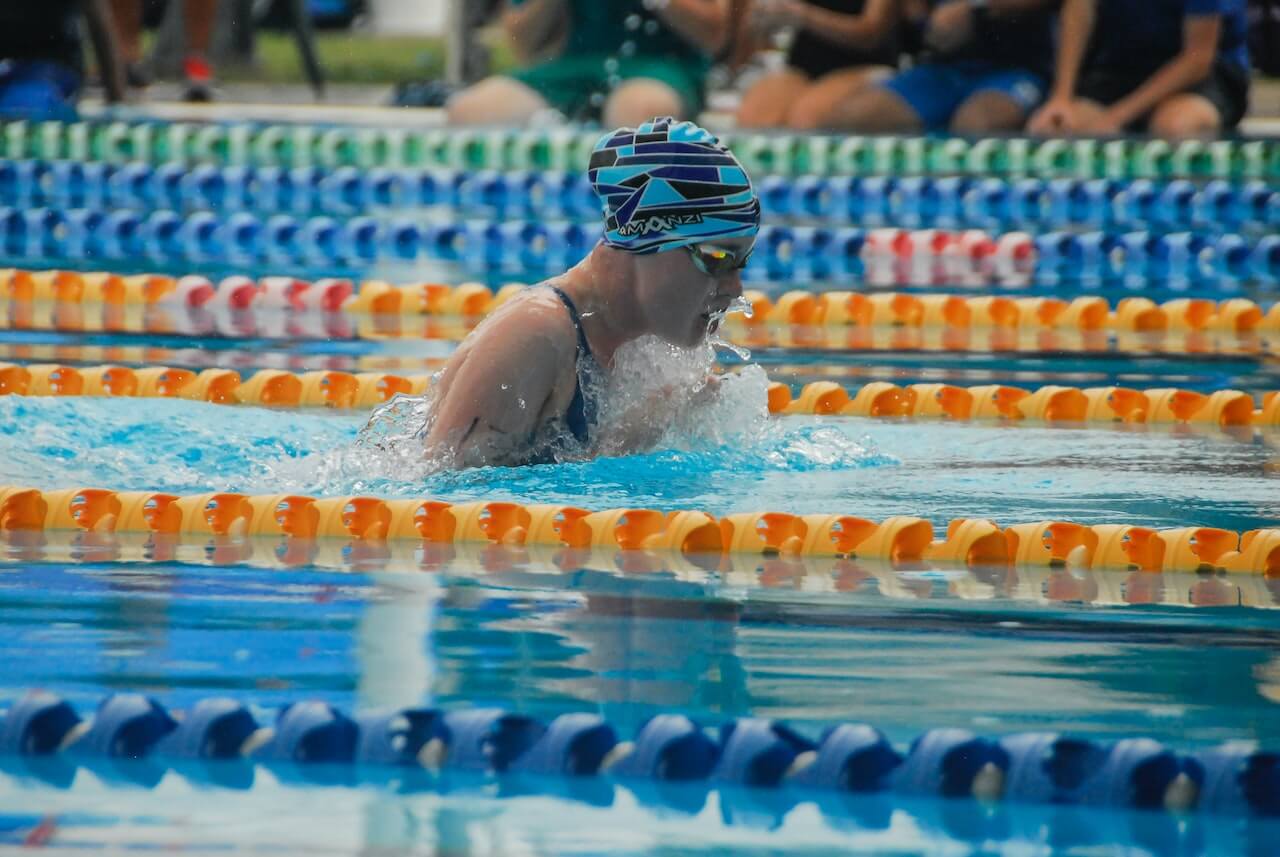
Proper post-swim nutrition not only accelerates recovery but also boosts your overall swim performance. By replenishing depleted nutrients and repairing damaged muscles after each workout, you’re essentially preparing your body for the next training session. This allows you to see progress and improvements in your swimming at a faster pace.
Make sure to hydrate adequately after your swim practice, too. Fluid intake is crucial to replace fluids lost from sweating and maintain optimal performance. Drink water or sports drinks if you prefer, and monitor your urine color to ensure proper hydration.
Ideal Macronutrient Balance
Carbohydrates
Carbohydrates are essential for swimmers, as they provide the primary source of energy for your muscles during practice. Aim to consume high-quality carbs such as pasta, potatoes, rice, lentils, and beans after your swim practice to replenish the glycogen stores in your muscles.
Eating a carbohydrate-rich snack or meal also helps fuel the recovery process and restores your energy levels. The amount of carbohydrates you need depends on the intensity and duration of your workout, but generally, around 50–60% of your total calorie intake should come from carbs.
Protein
After swimming, your muscles need the right kind of fuel to repair and rebuild. Aim for about 20-30g of protein after a heavy training session, which is the optimal amount for recovery.
Including high-quality protein sources such as eggs, chicken, fish, or legumes, ensures your body receives essential amino acids that aid in muscle repair and synthesis.
A well-rounded swimmer’s diet should have a protein intake of approximately 1.3-1.8 grams per kg of body mass per day and comprise 20-25% of your total calorie intake. By incorporating protein-rich foods, you can promote more efficient recovery and muscle development.
Fats
Don’t overlook the importance of healthy fats in your post-swim nutrition. They play a critical role in overall health, hormone production, and nutrient absorption.
Monounsaturated and polyunsaturated fats, such as those found in avocados, nuts, seeds, and olive oil, should make up a portion of your daily fat intake.
While it’s essential to focus on carbohydrates and protein for recovery, including some healthy fats in your post-swim meal will provide additional benefits.
For instance, omega-3 fatty acids found in fatty fish like salmon, can help reduce inflammation and improve overall heart health. Aim to have fats make up 20–25% of your total calorie intake throughout the day.
Best Foods to Eat After Swim Practice
Protein-rich Foods
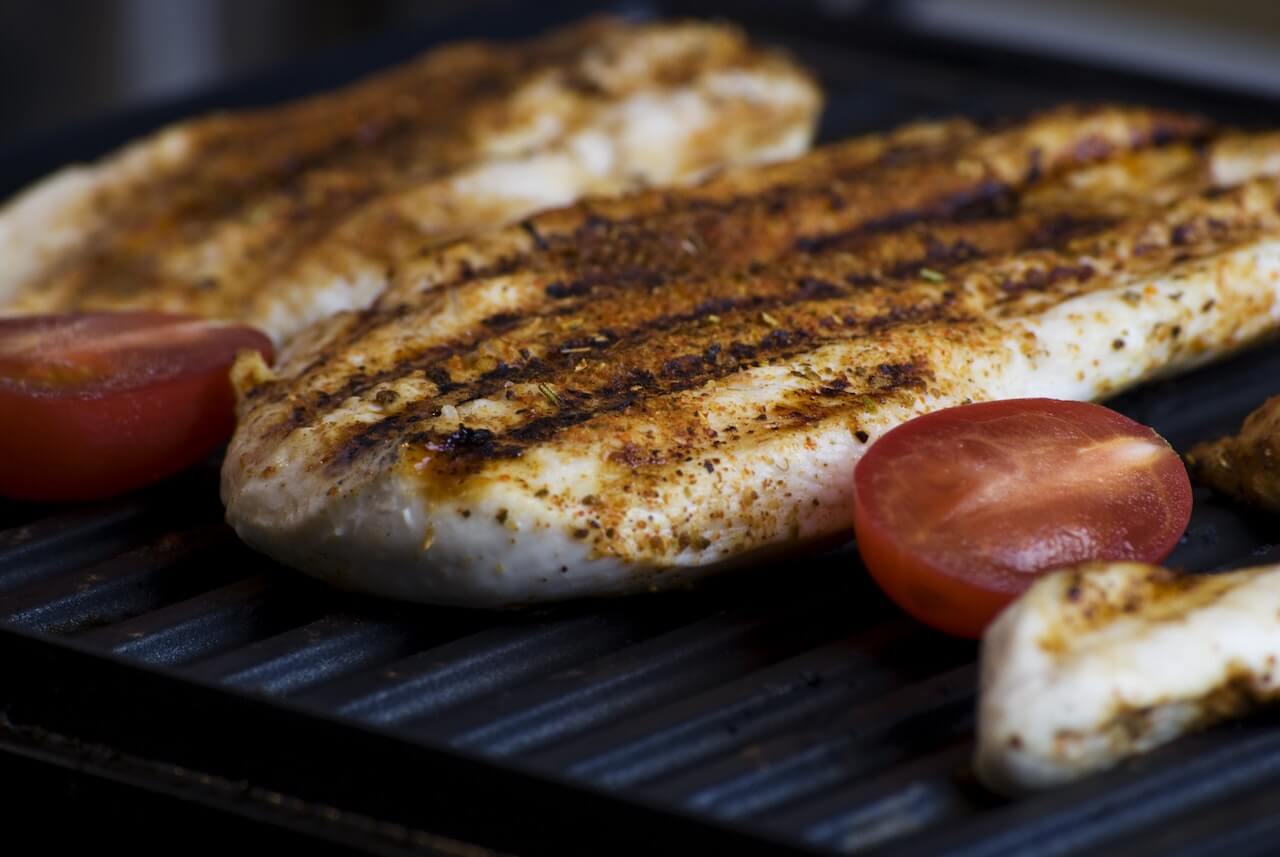
After an intense swim practice, your body needs protein to help repair and rebuild muscle tissue. Here are some excellent options:
- Scrambled eggs and avocado toast provide high-quality protein and healthy fats to fuel your recovery.
- Grilled chicken with quinoa is a fantastic combination for both protein and complex carbohydrates.
- Greek yogurt with fresh fruit offers protein and vitamins for a nutritious post-swim snack.
- Salmon cream cheese bagels are a delicious choice, providing omega-3 fatty acids and lean protein.
Carbohydrate-rich Foods
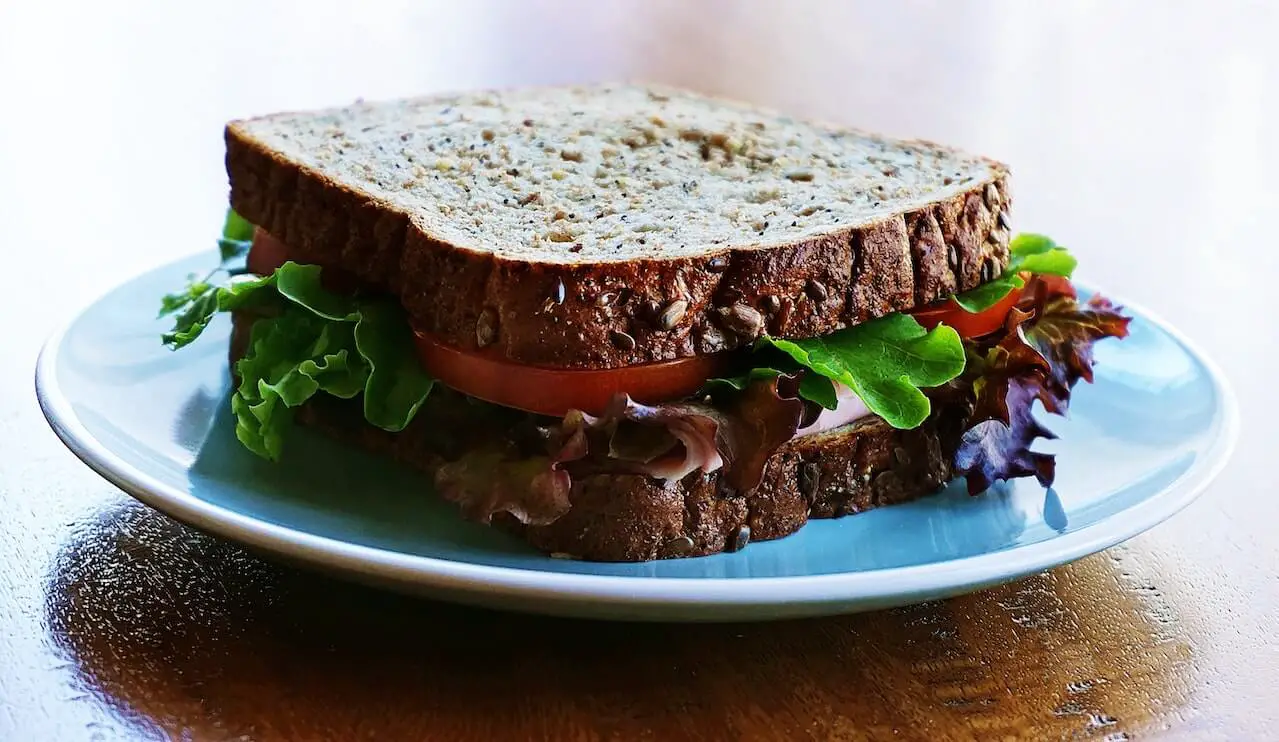
Carbohydrates are essential for refueling your energy stores and promoting muscle recovery. Consider these options:
- Oatmeal with protein powder and toppings, like fruits or nuts, is a great energy-boosting meal.
- Rice bowls with chicken and vegetables provide a healthy balance of carbohydrates and protein.
- Sweet potatoes are an excellent source of complex carbohydrates, vitamins, and minerals that aid in reducing inflammation and preventing cramps.
- Pasta with beans, like lentils or chickpeas, offers carbohydrates and plant-based protein for endurance and focus.
Healthy Fat Sources
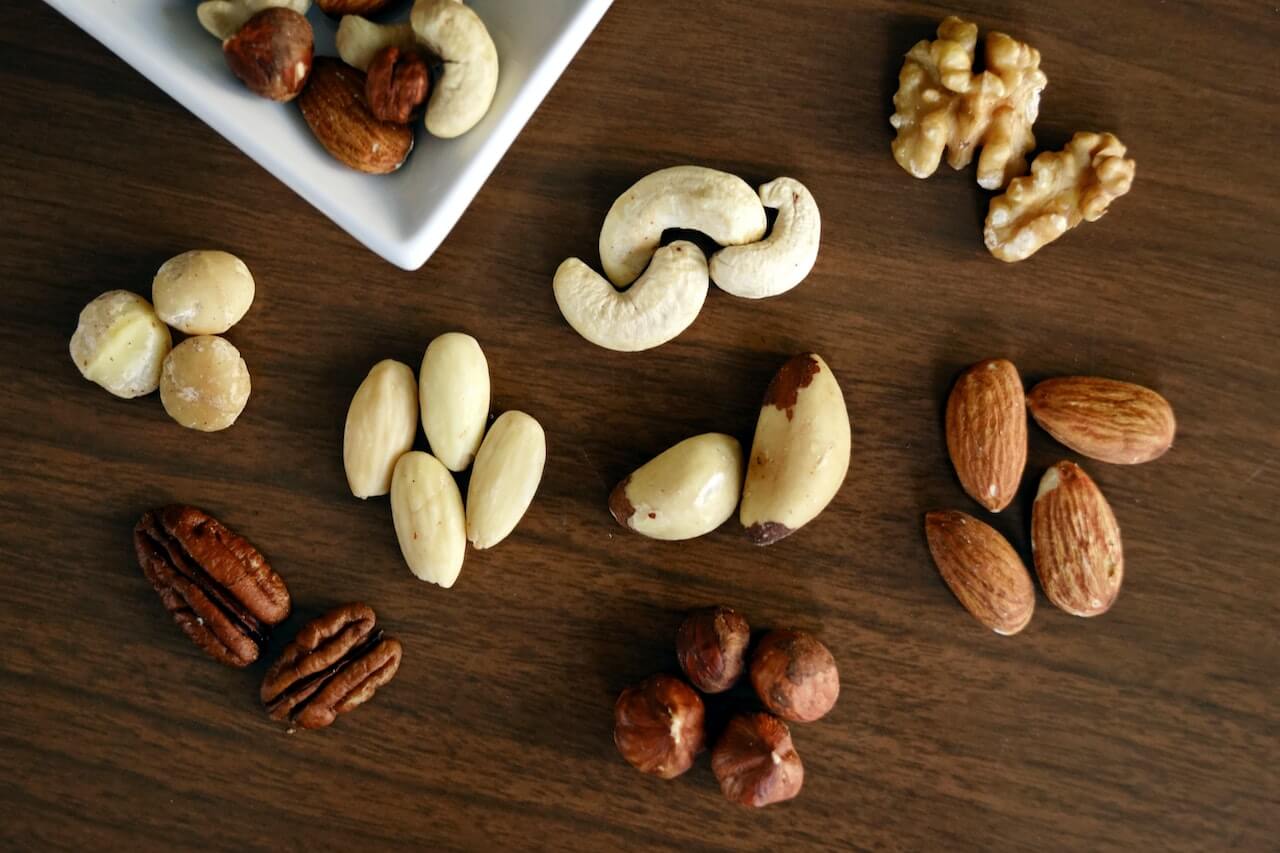
Healthy fats provide essential nutrients and aid in weight loss, making them ideal for post-swim consumption. Here are some suggestions:
- Peanut butter with bananas or a fruit-based sports drink supplies energy-dense calories and electrolytes for hydration.
- Avocado is a powerful source of healthy fats and can be included in salads, sandwiches, or smoothies.
- Low-fat chocolate milk has the perfect ratio of carbohydrates to protein and is packed with vitamins and minerals.
- Nuts, such as almonds or walnuts, offer healthy fats, protein, and other essential nutrients. They can be eaten alone as a snack or added to yogurt, oatmeal, or salads.
Enjoy these delicious and nutritious options to fuel your body optimally!
Frequently Asked Questions
Should you eat after swim practice?
Yes, it’s important to eat after swim practice. Refueling your body helps maintain energy levels and kickstarts the recovery process. Aim to have a snack within an hour of your swim session that includes both proteins and carbs.
What foods should swimmers avoid?
As a swimmer, you should steer clear of foods that might hinder your performance or cause discomfort during training. Here’s a list of some foods swimmers should avoid or consume sparingly:
- Sugary drinks: They can cause energy crashes and will not adequately hydrate your body.
- Deep-fried foods: These can be difficult to digest and may leave you feeling sluggish.
- High-fiber foods close to swim practice: Consuming these can lead to bloating and discomfort during your swim.
- Large portions of spicy foods: These may cause stomach discomfort.
Remember, everyone’s body is different, so pay attention to how specific foods affect your performance and adjust your diet accordingly.
What is the best meal after swim practice?
The best meal after swim practice should help your body recover and restore its energy levels. This means incorporating a good balance of proteins, carbs, and healthy fats. Here are a few examples of well-rounded meals to enjoy post-swim:
- Salmon cream cheese bagels
- Scrambled eggs and avocado toast
- Oatmeal (with protein powder) and toppings
- Acai bowl (fruit, peanut butter, and granola)
Of course, there are many other delicious and nourishing meals to enjoy after swim practice. Be mindful of your body’s needs and preferences, and find what works best for you to optimize your performance and recovery.
Sources:
- https://www.swimnetwork.com/what-to-eat-before-and-after-swim-practice/
- https://www.swimmingworldmagazine.com/news/boost-recovery-with-these-7-post-practice-meals/
- https://www.swimnow.co.uk/health-and-wellbeing/swimming-nutrition-101-what-to-eat-before-during-and-after-swimming/
- https://blog.myswimpro.com/2020/11/03/what-swimmers-should-eat-before-during-and-after-swimming/
- https://www.bbcgoodfood.com/howto/guide/what-eat-after-swim
- https://swimcompetitive.com/training/meal-plan-swimmers/
- https://aquamobileswim.com/blog/best-healthy-snacks-for-swimming-workout/
